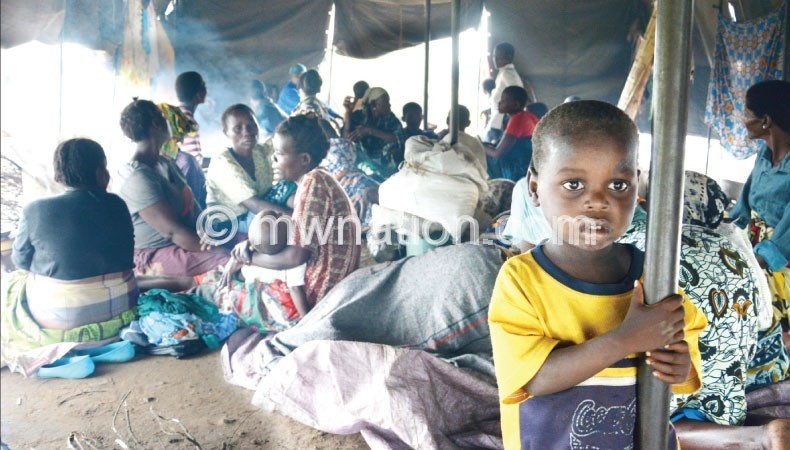Mulanje’s quiet victims of floods
ByTiferanji Malithano – Unicef
In early January, as the sun was rising, people of Matewere and Chabwela villages in Mulanje witnessed one of the most horrific events in the history of this small community. They saw two couples and three men board a small boat on the Ruo River, bordering Malawi and Mozambique. All of a sudden, there was a powerful surge of water and the boat, which was precariously attached to a pole in the middle of the river, capsized.
They managed to hang onto the boat for hours, but one by one they lost their grip and by the afternoon they were all swept away, presumed drowned. One of the helpless onlookers was a teenage boy, who painfully stood by watching the slow death of his parents. On that day, eight children from two different families lost their parents to the raging waters.
It is two months after the incident. But today the Ruo River steadily rumbles along—this time graciously sharing its shores with fishers and bathers.
Unicef’s Child Protection team is back in this remote community to support government social welfare officers in counselling the boy who witnessed the tragic incident, as well as three of his siblings who are also minors. Their names remain confidential to protect their identities.
“I watched the whole time. Sometimes I shouted, begging them to somehow swim to shore. I watched my parents get weaker and weaker, then they were gone,” he says.
There are many stories all over Malawi of children who survived the floods but whose lives will never be the same again.
In Nsanje, Agnes (not her real name) sits quietly with her new ‘mother’ Patricia. Agnes was plucked from raging waters in the middle of the night by Patricia who was huddled on a dry anthill with her two other children. Agnes was soon evacuated to a displacement camp and has no idea where her parents are. Patricia has now ‘adopted’ her as her own daughter.
“I am taking her as my own child, I can look after her. Once we go back, we can try to find her relatives, but for now, she is part of my family,” says Patricia with a protective tone.
Leading the effort to identify unaccompanied and vulnerable children is Unicef’s Child Protection team, in collaboration with the Police Victim Support Units (VSU’s) and the district social welfare teams, which are part of the Ministry of Gender, Children, Disability and Social Welfare.
It took only a few days after the floods, before the rumours begun, quickly followed with confirmed stories of unaccompanied minors, orphans and child-headed families in dire need of material and psychological support.
Brendan Ross, Unicef’s child protection specialist, says it has taken a few very challenging weeks to implement the family-tracing and reunification system during this emergency, because the affected children are often dispersed, remote and mobile.
“Many children are lost, too young to speak, or so psychologically affected that they refuse to talk. In some cases we’ve identified and connected children to their rightful parents, only to discover that the reunification cannot take place due to serious child-protection concerns,” explains Ross.
In Matewere Village, the child protection team tracked down the second set of orphans who lost their parents to the boating accident. The three children, all under the age of 14, are not home. They are greeted by their elderly grandmother who is still strong but visibly shaken by the tragedy. It turns out that on the day their parents drowned, the relative they were looking for was their son-in-law, a husband to their 18-year-old daughter.
The grandmother says the last few weeks have been tough.
“Most of the time, my grandchildren are distressed and break down in tears. Financially life is hard, so the children regularly go out to do piece work to get extra money or food,” she says.
Even before this crisis, 47 percent of children in the country did not possess the three minimum required material needs: shoes, a blanket and a second set of clothing. Of the one million already orphaned children, many struggle to get basic care and protection, leaving them vulnerable to neglect, abuse and exploitation.
Martha Ngulube, the social welfare officer for Mulanje District, says they are doing their best with minimum resources.
“These children that we are tracking today, at least have basic care and protection from their relatives, but for many children in the camps, that support system was wiped away with the floods,” says Ngulube.
The floods, which affected 15 districts of the country, have displaced around 230 000 people with 106 dead or missing. And while the waters are receding and camps are closing, Unicef continues to support the most affected districts, understanding that the recovery of the most vulnerable children will take longer to achieve. n





